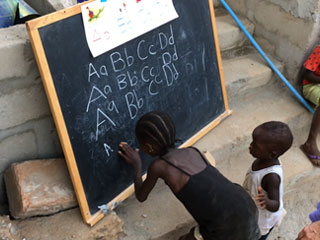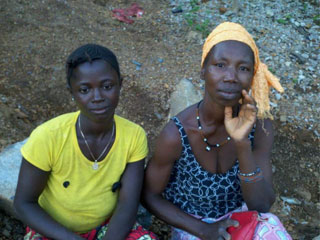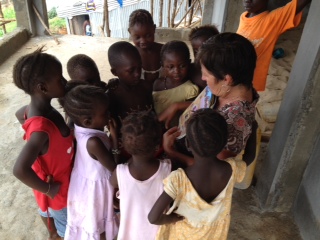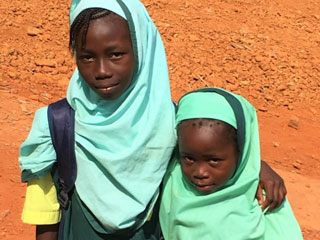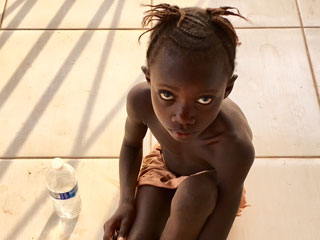About Sierra Leone
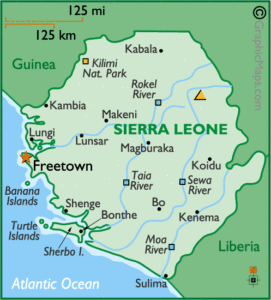 Sierra Leone, one of the poorest countries on earth, is a country in West Africa bordered by Guinea, Liberia, and the Atlantic Ocean. Sierra Leone has a tropical climate with a diverse environment ranging from savannah to rainforests. The country has a total area of 27,699 sq. mi. and a population of 7,075,641 (based on 2015 national census). It is a constitutional republic with a directly elected president and a unicameral legislature.
Sierra Leone, one of the poorest countries on earth, is a country in West Africa bordered by Guinea, Liberia, and the Atlantic Ocean. Sierra Leone has a tropical climate with a diverse environment ranging from savannah to rainforests. The country has a total area of 27,699 sq. mi. and a population of 7,075,641 (based on 2015 national census). It is a constitutional republic with a directly elected president and a unicameral legislature.
Sierra Leone became independent from the United Kingdom in1961. From 1991 to 2002, the Sierra Leone civil war was fought and devastated the country. The proxy war left more than 50,000 people dead, much of the country’s infrastructure destroyed. In January 2002, the war ended, with help by the British Government, ECOWAS and the United Nations. More recently, the 2014 Ebola outbreak overburdened the weak healthcare infrastructure, leading to more deaths from medical neglect than Ebola itself. It created a humanitarian crisis situation and heavily impacted economic growth.
About sixteen ethnic groups inhabit Sierra Leone, each with its own language and customs. Although English is the official language spoken at schools and government administration, the Krio language is the most widely spoken language across Sierra Leone.
Sierra Leone is regarded as one of the most religiously tolerant nations in the world. Muslims and Christians collaborate and interact with each other very peacefully.
Education in Sierra Leone is legally required for all children for six years at primary level and three years in junior secondary education, but a shortage of schools and teachers has made implementation impossible. Two thirds of the adult population of the country are illiterate.
The Sierra Leone civil war resulted in the destruction of 1,270 primary schools, and in 2001, 67% of all school-age children were out of school. The situation has improved considerably since then with primary school enrolment doubling between 2001 and 2005 and the reconstruction of many schools since the end of the war.

